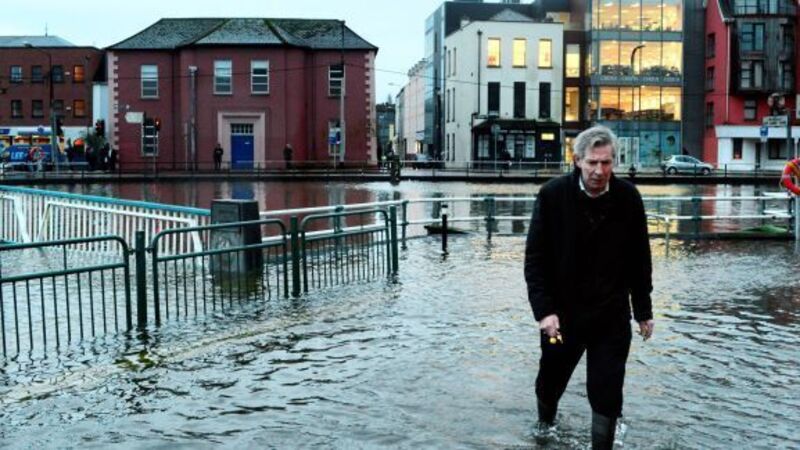Facing up to long-term costs of climate change

The state of California has been haunted by a lack of rain and too much sunshine in recent months; a train ride through some of the UK countryside last weekend convinced me that however bad we have had it here, the UK has really been devastated with floods; and of course the scenes this week from Cork, Waterford, Limerick and many other parts of the country have been truly horrific.
Unfortunately, the forecasters are telling us there is a lot more of the same on the way over the next couple of weeks at least. The longer-term prognosis is even more serious. The reaction of people in the afflicted areas towards politicians, or at least those that made it onto the TV screens, would convince anybody with a brain to steer well away from politics. It is a no-win situation andI become more amazed by the day at the efforts that aspiring and existing politicians will go to to retain or get into power.











